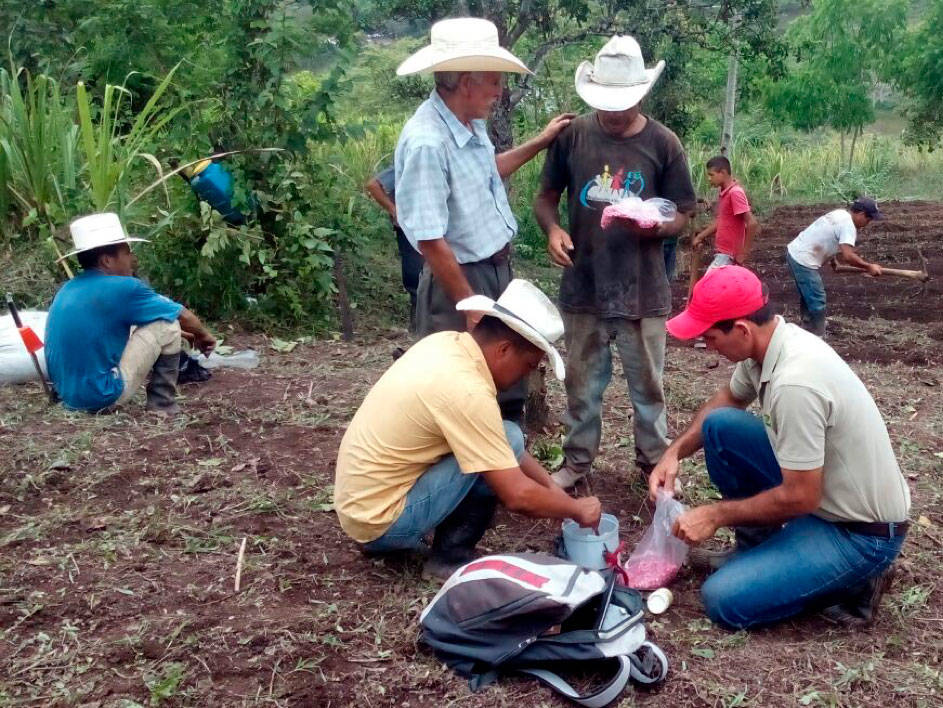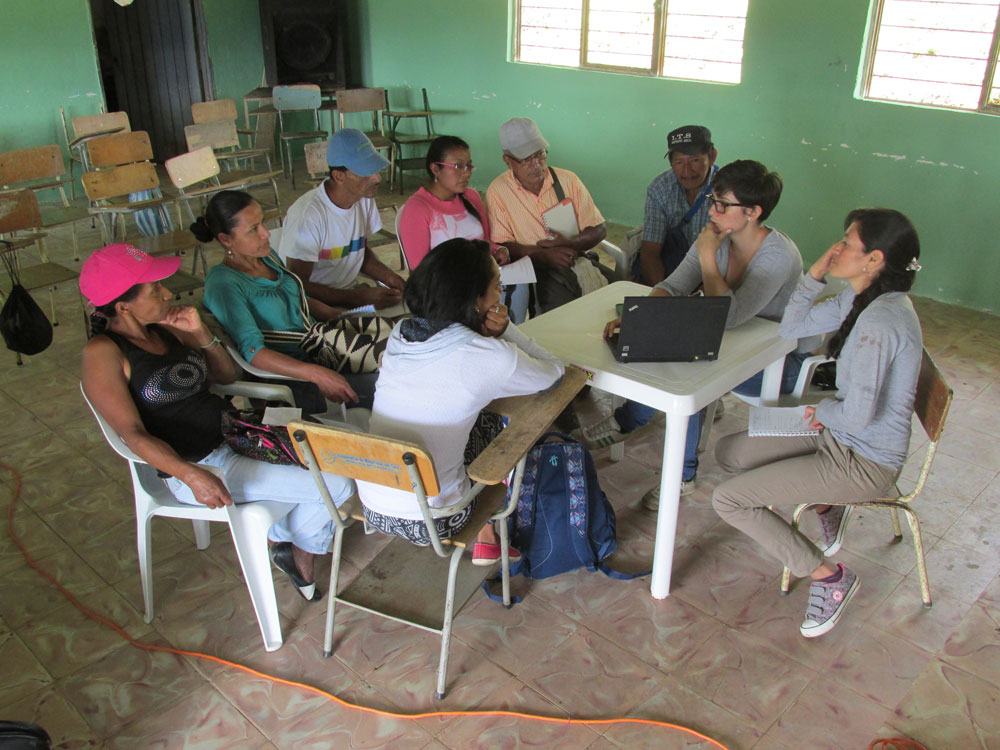
What are innovation platforms?
The networks or platforms for dialogue and innovation, integrated by different social actors who share interest in a particular activity or sector such as agriculture, constitute an important tool at the service of the generation and adoption of technological, organizational, communicational and institutional innovations that favor productivity improvement, vulnerability reduction, adaptation to climate change and mitigation of GHG emissions from production systems. To adequately fulfill their mission, the platforms require appropriate operating methodologies.

Project Objectives
This project was aimed at strengthening, methodologically, local networks integrated by NGOs, the International Center for Tropical Agriculture (CIAT) and producer groups that work together to improve climate change adaptation in Popayán in Colombia and in the Dry Corridor of Honduras. Novel practices and facilitation tools were proposed for the long-term projection of the adoption of innovations and for monitoring and evaluation of the technical, productive, economic, environmental and social impact in a given territory. The tools are based on literature reviews, working with focus groups, testing new technologies, simulating the effect of innovations on food security, resilience, GHG emissions and trade-offs between farmers. The direct beneficiaries were 450 producers.
The tested methodology
The developed methodology includes indicators and tools to analyze the characteristics of a study area, define local objectives and prioritize technologies. It also allows the evaluation of the innovation process in terms of increasing the knowledge of producers on climate change issues and the analysis of the trade-offs between production, adaptation and reduction of GHG emissions. The methodology comprise the diagnosis of strengths, weaknesses, opportunities and challenges of the farms and the limitations to initiate an innovation process, the prioritization of technological and organizational options and their evaluation by means of the ASAC performance calculator under different climatic scenarios, the testing of options through field schools for farmers, and validation by quantifying changes in knowledge, adoption and performance of innovations.
Results and potential impacts
As a result of the test of the methodology, the number of producers with a good understanding of the concept of climate change was increased by more than 30%, out of a total of 120, in response to training, implemented practices and technical support. The production practices tested with 30 farmers per site increased local food availability by more than 10% due to the cultivation of home gardens, improved farm resilience by 40% by crop diversification and greater access to water and reduced 30% of GHG emissions with the use of compost and the reduction in use of synthetic fertilizers. 90% of the participating farmers are adopting the practices and others have shown interest in joining the platforms. Additional funds were obtained from the Agropolis Foundation and the CCAFS program of the CGIAR that allowed validating ten innovations (water reservoirs, rainwater harvesting, family-type water pump, orchards, compost, solar dryer, improved sorghum varieties, corn, bean and avocado) and producing a manual for using the methodology to promote sustainable agriculture adapted to the climate at the local level. As a potential impact, a multiplier effect of the benefits is expected following the dissemination of the tested methodology, which will allow interdisciplinary work between farmers and researchers to promote, through innovation, sustainable agriculture adapted to the evolution of climate change. As a driver of impact, it is important to note that the methodology developed has been included in the work of CCAFS in its 36 research sites in Latin America, Africa and Asia.




